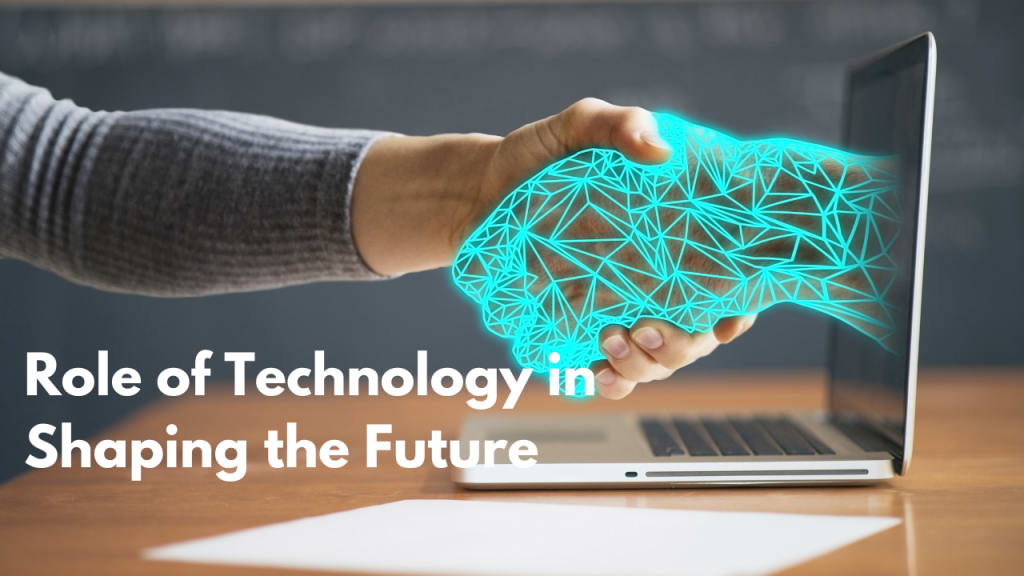In the vast landscape of human civilization, few forces have shaped our world as profoundly as technology. From the discovery of fire to the invention of the wheel, and from the printing press to the internet, technology has been the catalyst for progress, innovation, and societal transformation. The Impact of Technology: Shaping Today and Tomorrow In this essay, we explore the multifaceted dimensions of technology, its impact on various aspects of human life, and the ethical considerations that accompany its relentless march forward.
The Evolution of Technology: From Fire to Artificial Intelligence
The story of technology is one of constant evolution and innovation. Our ancestors harnessed the power of fire for warmth, protection, and cooking, marking the dawn of human civilization. The invention of the wheel revolutionized transportation and trade, laying the foundation for interconnected societies. With each passing era, new inventions and discoveries propelled humanity forward, from the steam engine and electricity to the telephone and the automobile.

In the 20th century, the pace of technological advancement accelerated exponentially. The advent of computers and the internet transformed the way we communicate, work, and access information. Today, we stand on the brink of a new era defined by artificial intelligence, quantum computing, and biotechnology. These emerging technologies hold the promise of solving some of humanity’s most pressing challenges while raising profound ethical questions about the nature of intelligence, privacy, and human dignity.
The Impact of Technology on Society
Technology has permeated every facet of modern society, reshaping the way we live, work, and interact with one another. In the realm of healthcare, medical advancements have extended human lifespan, eradicated diseases, and improved the quality of life for millions. From life-saving surgeries to precision medicine and telemedicine, technology has revolutionized the practice of medicine, making healthcare more accessible and efficient than ever before.
In the realm of education, technology has democratized learning, breaking down barriers to access and expanding educational opportunities for people around the globe. Online platforms, digital textbooks, and interactive learning tools have transformed traditional classrooms into dynamic spaces of exploration and discovery. However, the digital divide persists, with marginalized communities facing disparities in access to technology and digital literacy skills.

In the realm of commerce and industry, technology has fueled economic growth, driving innovation, and fostering global connectivity. From e-commerce and digital payments to supply chain automation and artificial intelligence-driven analytics, businesses are leveraging technology to streamline operations, enhance productivity, and gain a competitive edge in the marketplace. However, concerns about job displacement, income inequality, and the concentration of wealth in the hands of a few tech giants loom large in an increasingly digitized economy.
The Ethical Implications of Technology
As technology continues to advance, so too do the ethical dilemmas and moral quandaries it presents. From concerns about data privacy and cybersecurity to the ethical implications of artificial intelligence and genetic engineering, the ethical landscape of technology is fraught with complexity and ambiguity.
One of the most pressing ethical issues facing the tech industry is the proliferation of data collection and surveillance. In an age of ubiquitous connectivity and smart devices, personal data has become a valuable commodity, traded and exploited by corporations and governments alike. The unchecked collection and misuse of personal data raise serious concerns about privacy, consent, and the erosion of individual autonomy.
Furthermore, the rise of artificial intelligence poses profound ethical questions about the nature of consciousness, autonomy, and moral agency. As AI systems become increasingly sophisticated and autonomous, the potential for unintended consequences and ethical lapses grows exponentially. From algorithmic bias and discrimination to the existential risks posed by superintelligent AI, the ethical implications of AI technology demand careful consideration and deliberation.

Moreover, advances in biotechnology, including gene editing and human enhancement, raise profound questions about the sanctity of life, the nature of identity, and the limits of human potential. While these technologies hold the promise of curing genetic diseases and enhancing human capabilities, they also raise ethical concerns about eugenics, inequality, and the commodification of life itself.
Conclusion
In conclusion, technology is a double-edged sword that has the power to both liberate and oppress, to empower and disenfranchise, to unite and divide. As we stand on the threshold of a new technological era, it is imperative that we confront the ethical challenges and moral responsibilities that accompany the relentless march of progress. By fostering open dialogue, promoting transparency, and embracing a human-centered approach to technology, we can harness its transformative potential for the betterment of humanity. In the words of Albert Einstein, “It has become appallingly obvious that our technology has exceeded our humanity.” It is time to bridge the gap between our technological prowess and our moral compass, lest we lose sight of what it means to be truly human in the digital age.




























































